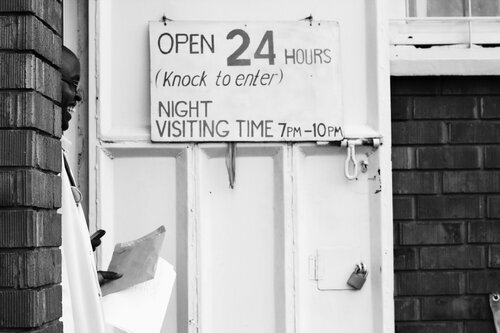How medical collective intelligence can help protect less fortunate countries from the effects of global pandemics
If there’s one thing that Coronavirus has taught the world since its outbreak in Wuhan, it’s that the pace of a pandemic can never be properly gauged before its effects are felt.
Even in an age of revolutionary medical science, COVID-19 has moved both rapidly and unforgivingly across the globe, taking lives and livelihoods with it along the way.
Health professionals are scrambling to keep up and the pharmaceutical industry is buckling under the pressure of producing a vaccine before the end of the year. Something which is looking less and less likely and the months roll on.
But spare a thought for those in the third world, whose countries are merely trying to ride out the wave of COVID rather than push for a cure.
While humanitarian aid organisations are doing everything that they can to stem the outbreak in impoverished nations and communities, their efforts are unfortunately most often bound to being reactive rather than proactive.
Poor communities rarely have the doctors or resources to handle their day-to-day medical needs, let alone to control a global pandemic that is threatening global leaders.
Which is why it’s crucial for everyone to pitch in and help those living in less fortunate countries during this crisis.
As the title of this article states clearly, the potential for medical collective intelligence to help those living in impoverished nations is immense, and a spotlight must be shone on the potential that even a single medical professional has to help this collective goal.
The current process of sharing and disseminating medical knowledge, whether through text such as peer-reviewed journals or other print methods is proving too slow.
Which means, in turn, that the those who could benefit most from medical knowledge such as impoverished peoples simply aren’t receiving the information they need promptly.
This is compounded by other barriers such as language and distance, factors which stack the odds further against countries struggling to make do during this crisis.
But what, many are asking, is the alternative?
The answer may lay in specialist groups and discussions occurring on social media streams such as Facebook and Twitter.
Take for example the PMG COVID19 Subgroup, a currently 37,000 strong collective of registered physicians, formed with the express purpose of discussing COVID-19 and generating information that can be disseminated to the wider public.
To join you must prove your medical qualifications, creating an environment akin to a collective intelligence hivemind of specialists.
While still in its inception, this group is proving unequivocally that the potential exists for expert medical staff to share and compound their knowledge outside of traditional methods such as academic journals.
And the potential this has is threefold.
Firstly. It allows struggling doctors in remote or impoverished communities to access the input of their peers.
Finding the latest information and asking questions is often difficult for professionals who may be the sole holder of said profession within their respective communities.
Having access to a medical hivemind such as the PMG Facebook group may allow those who desperately need the input of their peers to access the information they need.
Secondly. It breaks down the barriers of communication and culture.
The PMG group regularly sees questions asked and answered in a huge variety of different languages and scripts. This allows foreign doctors to gain knowledge in their mother tongue, something that’s invaluable for ensuring that the right information is being passed on during this crisis.
Thirdly. It eases the burden on other outfits such as humanitarian agencies.
It’s important to point out that the idea of a medical collective intelligence hivemind is at no point meant to replace the work done by relief groups, who are no doubt working around the clock against COVID-19.
What it seeks to do instead is take some of the pressure of disseminating accurate information off these agencies, which in turn lets them focus on providing more physical aid to those suffering from the effects of Coronavirus.
And while the potential for misinformation spreading to occur exists in social streams, it is lessened by more medical professionals taking part.
Having gained over 6,000 members in the past two weeks, the PMG COVID-19 group is fortifying itself against the spreading of inaccurate information with each new physician that joins its ranks.
Giving those from less fortunate countries a place to turn to for guidance during this global pandemic, as every piece of medical input will no doubt help stem the wave of this current crisis.
—
Stay on top of the #collectiveintelligence trend
Ingredients for Successful Crowdsourcing: Crowdsourcing for policymaking combines the aspects of knowledge gathering and democratic deliberation and in this way, provides a path for knowledge-sharing and space for public debate that can impact policy creation and leverage the power of diversity.
As Coronavirus (COVID-19) worsens, there has been a surge in demand for collaboration tools: Mindhive is offering organisations free Premium+ during COVID-19 pandemic. How collective intelligence practices can help keep companies afloat against COVID-19. Globalisation will never truly die as digital technology continues to shrink the distance between us.
On the front lines: Digital Herd Immunity: How collaborative work software is changing how we fight pandemics. How to find the right problem to solve and create the right solution to solve it. As start-up jobs dip, now is the time to support our venture businesses more than ever before. All around us COVID-19 is proving that traditional businesses are ready to begin permanently digitising
Pandemic fatigue: So why are so many people already sick and tired of hearing about Coronavirus? 3 tips for surviving COVID-19 — Our collective intelligence experts share their knowledge on making it through tough times as a business.
The Future Lies In Our Collective Intelligence: How human knowledge and machine learning have the potential to combat fear. Is machine learning now more important to collective intelligence than those who created it? How medical collective intelligence can help protect less fortunate countries from the effects of global pandemics.
Seeing an opportunity: An upside to being a part of Mindhive is collectively generating ideas, problem-solving and learning with a really interesting community of people from around the world. What are you curious about?.
How I can help: ‘I had nothing to offer anybody but my own confusion’ We make the road by walking.
Bring the crowd with you. Colombia has been in a state of civil war for more than 50 years. And recently, they rejected peace.
Product Community
Join the Mindhive Product Community for development updates and become part of the Product Team to help shape Mindhive.
Next steps
Mindhive is a platform that facilitates discussion on topics that affect you – and what we can do about it.
Join a discussion and lend your voice
Mindhive is used in research, government, community groups and consultancies to canvas a wide spectrum of voices to surface sentiment, insight, and the unexpected.


